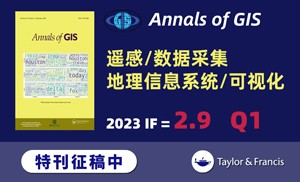当前位置:
X-MOL 学术
›
EFORT Open Rev.
›
论文详情
Our official English website, www.x-mol.net, welcomes your
feedback! (Note: you will need to create a separate account there.)
Management of fracture-related infection in low resource settings: how applicable are the current consensus guidelines?
EFORT Open Reviews ( IF 4.3 ) Pub Date : 2022-05-31 , DOI: 10.1530/eor-22-0031 Elizabeth K Tissingh 1, 2 , Leonard Marais 3 , Antonio Loro 4 , Deepa Bose 5 , Nilo T Paner 6 , Jamie Ferguson 1, 6 , Mario Morgensten 7 , Martin McNally 1
EFORT Open Reviews ( IF 4.3 ) Pub Date : 2022-05-31 , DOI: 10.1530/eor-22-0031 Elizabeth K Tissingh 1, 2 , Leonard Marais 3 , Antonio Loro 4 , Deepa Bose 5 , Nilo T Paner 6 , Jamie Ferguson 1, 6 , Mario Morgensten 7 , Martin McNally 1
Affiliation
The global burden of fracture-related infection (FRI) is likely to be found in countries with limited healthcare resources and strategies are needed to ensure the best available practice is context appropriate. This study has two main aims: (i) to assess the applicability of recently published expert guidance from the FRI consensus groups on the diagnosis and management of FRI to low- and middle-income countries (LMICs); (ii) to summarise the available evidence on FRI, with consideration for strategies applicable to low resource settings. Data related to the International Consensus Meeting Orthopaedic Trauma Work Group and the International Fracture Related Infection Consensus Group FRI guidelines were collected including panel membership, country of origin, language of publication, open access status and impact factor of the journal of publication. The recommendations and guidelines were then summarised with specific consideration for relevance and applicability to LMICs. Barriers to implementation were explored within a group of LMIC residents and experienced workers. The authorship, evidence base and reach of the FRI consensus guidelines lack representation from low resource settings. The majority of authors (78.5-100%) are based in high-income countries and there are no low-income country collaborators listed in any of the papers. All papers are in English. The FRI consensus guidelines give a clear set of principles for the optimum management of FRI. Many of these - including the approach to diagnosis, multidisciplinary team working and some elements of surgical management - are achievable in low resource settings. Current evidence suggests that it is important that a core set of principles is prioritised but robust evidence for this is lacking. There are major organisational and infrastructure obstacles in LMICs that will make any standardisation of FRI diagnosis or management challenging. The detail of how FRI consensus principles should be applied in low resource settings requires further work. The important work presented in the current FRI consensus guidelines is relevant to low resource settings. However, leadership, collaboration, creativity and innovation will be needed to implement these strategies for communities who need it the most.
中文翻译:

资源匮乏地区骨折相关感染的管理:当前共识指南的适用性如何?
骨折相关感染 (FRI) 的全球负担很可能出现在医疗资源有限的国家,因此需要制定策略来确保最佳可行做法适合具体情况。本研究有两个主要目的:(i) 评估 FRI 共识小组最近发布的关于 FRI 诊断和管理的专家指南对低收入和中等收入国家 (LMIC) 的适用性;(ii) 总结关于 FRI 的现有证据,并考虑适用于资源匮乏环境的策略。收集了与国际骨科创伤工作组共识会议和国际骨折相关感染共识组 FRI 指南相关的数据,包括小组成员、原籍国、出版语言、出版期刊的开放获取状态和影响因子。然后总结了这些建议和指南,并特别考虑了对 LMIC 的相关性和适用性。在一组 LMIC 居民和经验丰富的工人中探讨了实施障碍。FRI 共识指南的作者身份、证据基础和范围缺乏资源匮乏环境的代表性。大多数作者 (78.5-100%) 来自高收入国家,任何论文中都没有列出低收入国家的合作者。所有论文都是英文的。FRI 共识指南为 FRI 的最佳管理提供了一套明确的原则。其中许多——包括诊断方法、多学科团队合作和手术管理的一些要素——在资源匮乏的环境中是可以实现的。目前的证据表明,优先考虑一套核心原则很重要,但缺乏强有力的证据。中低收入国家存在重大的组织和基础设施障碍,这将使 FRI 诊断或管理的任何标准化都具有挑战性。FRI 共识原则应如何应用于低资源环境的细节需要进一步的工作。当前 FRI 共识指南中提出的重要工作与低资源环境有关。然而,为最需要它的社区实施这些战略需要领导力、协作、创造力和创新。中低收入国家存在重大的组织和基础设施障碍,这将使 FRI 诊断或管理的任何标准化都具有挑战性。FRI 共识原则应如何应用于低资源环境的细节需要进一步的工作。当前 FRI 共识指南中提出的重要工作与低资源环境有关。然而,为最需要它的社区实施这些战略需要领导力、协作、创造力和创新。中低收入国家存在重大的组织和基础设施障碍,这将使 FRI 诊断或管理的任何标准化都具有挑战性。FRI 共识原则应如何应用于低资源环境的细节需要进一步的工作。当前 FRI 共识指南中提出的重要工作与低资源环境有关。然而,为最需要它的社区实施这些战略需要领导力、协作、创造力和创新。
更新日期:2022-05-31
中文翻译:

资源匮乏地区骨折相关感染的管理:当前共识指南的适用性如何?
骨折相关感染 (FRI) 的全球负担很可能出现在医疗资源有限的国家,因此需要制定策略来确保最佳可行做法适合具体情况。本研究有两个主要目的:(i) 评估 FRI 共识小组最近发布的关于 FRI 诊断和管理的专家指南对低收入和中等收入国家 (LMIC) 的适用性;(ii) 总结关于 FRI 的现有证据,并考虑适用于资源匮乏环境的策略。收集了与国际骨科创伤工作组共识会议和国际骨折相关感染共识组 FRI 指南相关的数据,包括小组成员、原籍国、出版语言、出版期刊的开放获取状态和影响因子。然后总结了这些建议和指南,并特别考虑了对 LMIC 的相关性和适用性。在一组 LMIC 居民和经验丰富的工人中探讨了实施障碍。FRI 共识指南的作者身份、证据基础和范围缺乏资源匮乏环境的代表性。大多数作者 (78.5-100%) 来自高收入国家,任何论文中都没有列出低收入国家的合作者。所有论文都是英文的。FRI 共识指南为 FRI 的最佳管理提供了一套明确的原则。其中许多——包括诊断方法、多学科团队合作和手术管理的一些要素——在资源匮乏的环境中是可以实现的。目前的证据表明,优先考虑一套核心原则很重要,但缺乏强有力的证据。中低收入国家存在重大的组织和基础设施障碍,这将使 FRI 诊断或管理的任何标准化都具有挑战性。FRI 共识原则应如何应用于低资源环境的细节需要进一步的工作。当前 FRI 共识指南中提出的重要工作与低资源环境有关。然而,为最需要它的社区实施这些战略需要领导力、协作、创造力和创新。中低收入国家存在重大的组织和基础设施障碍,这将使 FRI 诊断或管理的任何标准化都具有挑战性。FRI 共识原则应如何应用于低资源环境的细节需要进一步的工作。当前 FRI 共识指南中提出的重要工作与低资源环境有关。然而,为最需要它的社区实施这些战略需要领导力、协作、创造力和创新。中低收入国家存在重大的组织和基础设施障碍,这将使 FRI 诊断或管理的任何标准化都具有挑战性。FRI 共识原则应如何应用于低资源环境的细节需要进一步的工作。当前 FRI 共识指南中提出的重要工作与低资源环境有关。然而,为最需要它的社区实施这些战略需要领导力、协作、创造力和创新。









































 京公网安备 11010802027423号
京公网安备 11010802027423号